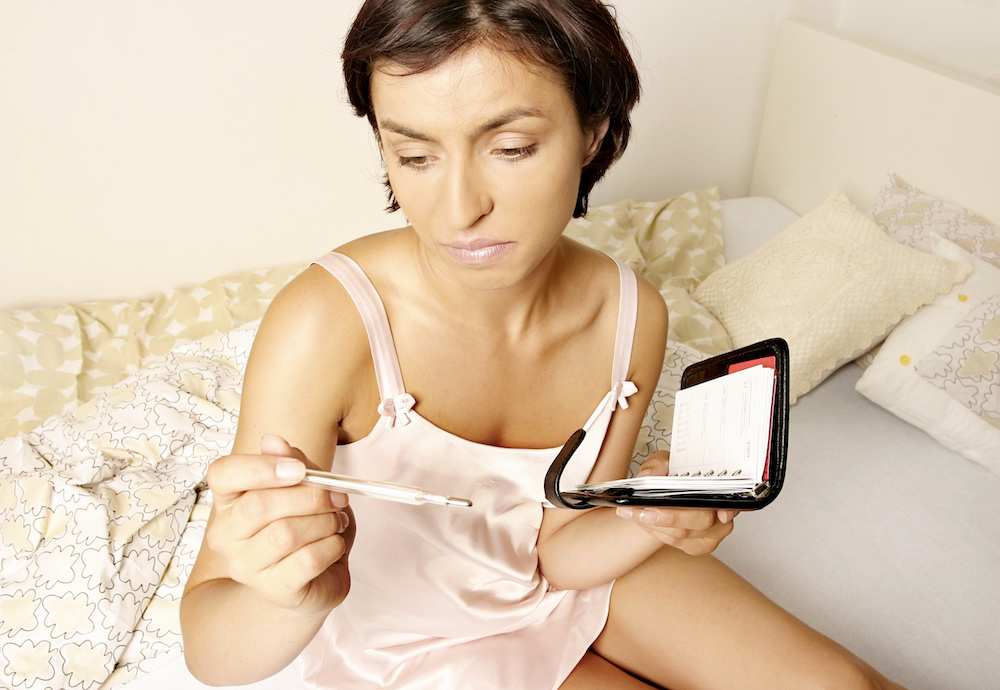Expert: Robert Barbieri, MD, Chair of Obstetrics and Gynecology at Brigham and Women’s Hospital
Polycystic Ovary Syndrome or PCOS is a common condition, affecting about 1 in 15 women. Women who have PCOS often do not make enough of the hormones needed to ovulate. Instead, their bodies secrete luteinizing hormone (LH) in abnormally high amounts from the pituitary gland. The ovaries may develop fluid-filled sacs that produce androgens, a male hormone that is normally found in smaller amounts in women. Androgens can impact the menstrual cycle and cause the symptoms of PCOS. Additionally, women with PCOS may have insulin resistance. Insulin resistance contributes to the weight gain that many women experience with PCOS.
What are the symptoms of PCOS?
- An irregular period is one obvious sign of PCOS. Women with PCOS usually have 6 or fewer periods in a year, compared to 12 or 13 per year for women who do not have the condition.
- Women with PCOS often experience acne that persists past adolescence.
- Weight gain in the midsection or difficulty losing weight is another symptom of PCOS.
- Many women with PCOS experience hirsutism, or male-pattern hair growth on the face, arms, and legs.
How is it diagnosed?
There is not
one definitive test for Polycystic Ovary Syndrome. Instead, PCOS can be diagnosed through an assessment of various factors. Your doctor may suggest the following:
- Ultrasound imaging to look for the presence of follicles on the ovaries (polycystic ovaries). Reports of irregular menstrual periods are also considered in the diagnosis of PCOS.
- Blood test to see if your blood has high androgen levels.
- Examination to search for physical expressions of high androgen levels such as acne and hirsutism (hair growing in places where it usually only does on men – back, stomach, chin). While insulin levels are often elevated in women with PCOS, physicians do not include high levels of insulin as a diagnostic factor because women who are overweight or obese could present with abnormally high insulin levels without having PCOS.
What are the treatments for PCOS?
- Women who are diagnosed with PCOS may be prescribed birth control pills or other hormonal contraceptives to control irregular periods. Birth control pills can treat acne and excess hair growth that is common in women with PCOS. They also prevent pregnancy.
- Women may be prescribed progestin to kick-start menstruation.
- Shaving and electrolysis can be used to control hirsutism.
- Doctors also recommend that overweight or obese women try to lose weight through nutrition and exercise. Weight loss can help women have more regular periods and it also decreases insulin levels.
How it affects fertility
Since you can’t get pregnant if you don’t ovulate, women with PCOS often have trouble conceiving. If you’re experiencing the symptoms of PCOS and have been unable to get pregnant, you might want to talk to your doctor about being evaluated for the condition. If you know you have PCOS and are having trouble getting pregnant, there are several fertility treatments available.
Certain lifestyle changes can also make pregnancy more likely to occur. For women with PCOS who are trying to become pregnant, a healthy diet and regular exercise can help with weight loss, which in turn may lower blood sugar and improve your body’s ability to use insulin.
If a new nutrition and exercise routine isn’t working, your doctor may prescribe medicine that causes ovulation. This type of treatment does come with some risks. Since ovarian induction pills stimulate the ovaries, you may release more than one egg. This makes multiple pregnancies slightly more likely. While only 1% of women in the general population will conceive multiples, 5% of women who have PCOS and receive ovarian stimulation pills will conceive multiples.
Carrying more than one baby increases your risk for a variety of pregnancy complications. If you are pregnant with twins or higher order multiples, your doctor will likely refer you to a high-risk pregnancy specialist who can monitor you and your babies.
Pregnancy and Polycystic Ovary Syndrome
Once pregnant—whether with multiples or one baby—women with PCOS are at an increased risk for some conditions and complications. Pregnant women with PCOS are at a higher risk of developing gestational diabetes and will need to carefully monitor their blood sugar. They may also be more likely to have high blood pressure while pregnant.
You may also be interested in:
